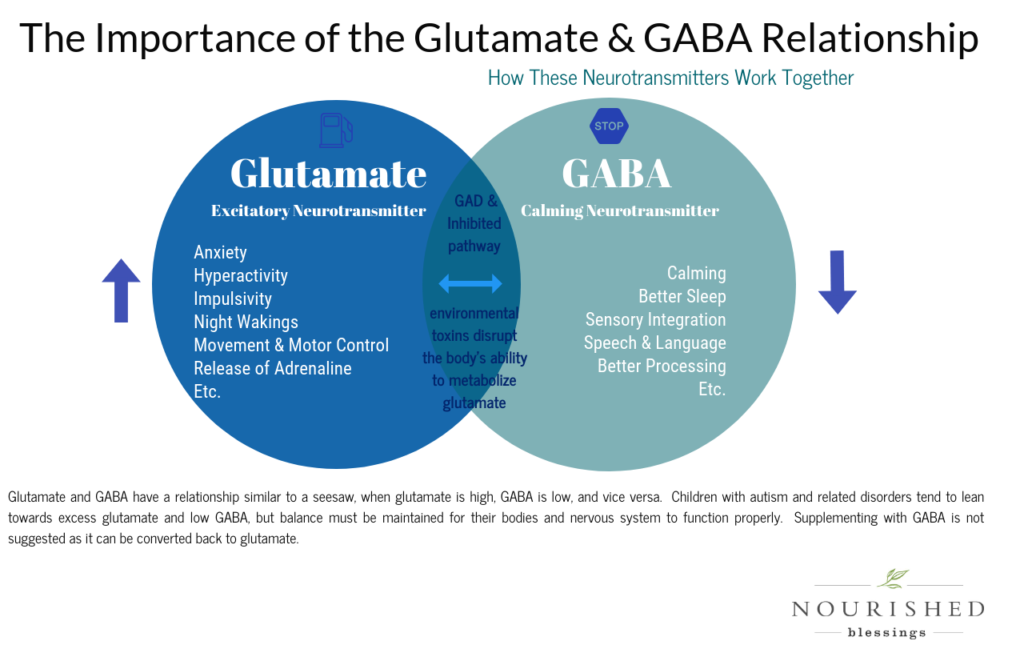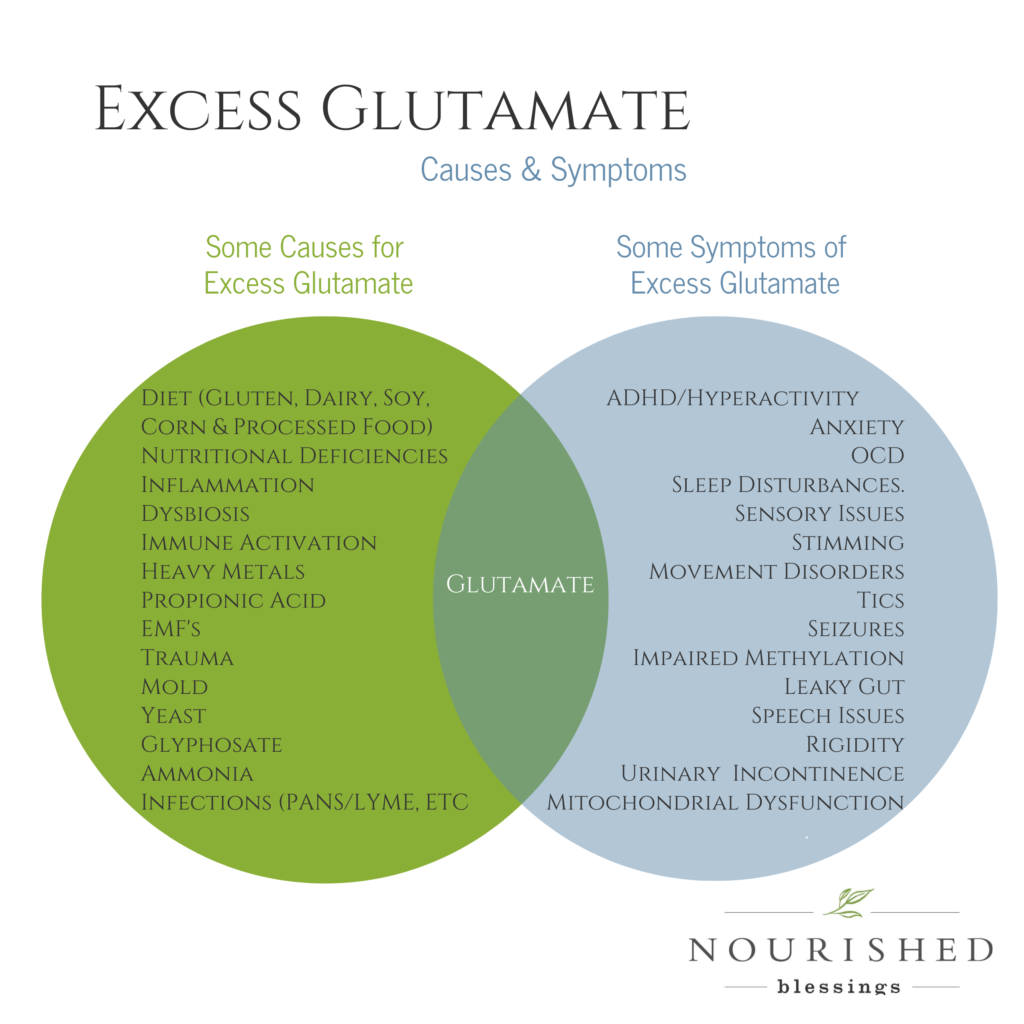Glutamate is a non-essential amino acid that can be bound in protein as found in whole foods (glutamic acid) or unbound as a free amino acid found in food additives or processed foods. Glutamate in whole, unprocessed food is rarely problematic. However, free glutamate (a term used by Dr. Katie Reid, Ph.D.) may be problematic for some. Free glutamate often results from manufacturing processes of foods high in bound glutamate. As these proteins (amino acids) are degraded, the result is the free amino acids, including free glutamate. Similarly, Monosodium Glutamate is a manufactured ingredient that has been produced to contain free glutamate and sodium.
Glutamate is also the most abundant neurotransmitter in the body, regulating over 50% of the nervous and sensory systems. According to Dr. Russell Blaylock, the body also produces glutamate in response to inflammation and immune activation. When glutamate is in excess, it can be problematic. Excess is the key. When these glutamate levels reach a high enough level to kill cells/neurons, it is called excitotoxicity. If the immune system triggers excess glutamate from the immune cellular response, this is considered immunoexcitotoxicity .

What is the Importance of Glutamate?
Glutamate is considered to be an excitatory neurotransmitter, which means it excites or stimulates nerve cells located throughout the nervous system. The excitatory pathway is responsible for a wide variety of functions like releasing adrenaline, controlling movement and motor systems, learning, memory, and expressing thought. It works in tandem with the inhibitory neurotransmitter GABA (gamma-aminobutyric acid), which calms and relaxes nerve cells. GABA is also imperative for sensory integration, sleep, speech, and language. Glutamate and GABA have a relationship similar to a seesaw. When glutamate is high, GABA is low, and vice versa. Those with hyperglutamate conditions tend to lean towards excess glutamate and low GABA, but a balance must be maintained for their bodies and nervous systems to function correctly. For some, supplementing with GABA may not work, as it can be converted back to glutamate.
From my understanding, glutamate is toxic at a cellular level and noticeable to the brain and nervous system when in excess. It can become so excitatory it is considered an excitotoxin, which means that it overstimulates neurons/cells to the point of killing them or damaging them enough to cause severe mitochondrial damage and neurological inflammation.
Excess glutamate is believed to be involved in a variety of hyper glutamate, neurological, and neurodegenerative disorders, including autism, obsessive-compulsive disorders, hyperactivity disorders, complex motor stereotypes, tics, insomnia, anxiety disorders, seizures, sensory processing disorder, addiction, depression, chronic fatigue, PANS, PANDAS, Alzheimer’s, and so on.
What Would Cause Someone to be More Sensitive to Glutamate?
Chronic inflammation, microglial activation, autoimmune disorders, neurological damage, poor detoxification pathways, gene mutations, toxins, glyphosate, aluminum, mercury, etc., may all increase glutamate and signaling. According to Dr. Reid, Ph.D., even various microbes/parasites can promote an environment for glutamate metabolism, increasing glutamate signaling. Glutamate initiates the inflammatory response and vice versa. Inflammation causes the cells to signal additional glutamate.
Diet and Glutamate
We found that dietary sources of free glutamate, monosodium glutamate (MSG), and aspartate resulted in high glutamate-type symptoms.

